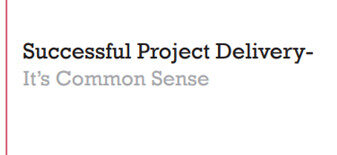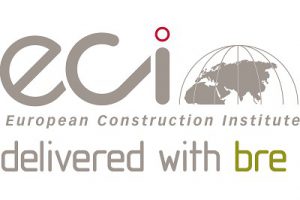“Net Zero ‘at risk” without tax breaks” (*Times, Business Section, 4 February 2023) reported that the CEOs of Renewables UK, Energy UK, The Nuclear Industry Association, Scottish Renewables and Solar Energy UK have written jointly to the UK Chancellor of the Exchequer saying that tax breaks are needed to encourage investment in green energy. As Chair of the European Construction Institute (ECI), I do not perceive this to be the problem.
Unequivocal and unremitting UK Government policy driving continued commitment to support green energy in the pursuit of Net Zero 2050 is essential if the UK is to keep up with, let alone lead, other countries across the globe in this existential challenge. I also do not doubt that tax breaks might be of help. But, neither of these considerations addresses and resolves the real impediment to achieving Net Zero. This is a problem with the engineering construction industry itself, not Government, and is not confined to the UK.
Many Energy Transition / Net Zero projects are ‘mega’ (exceeding USD 1bn) and are often complex, including those of lesser value. The industry has a legacy of only one in four mega projects meeting their business objectives – a failure rate of 75%. Typically, they are delivered significantly over budget and very late and, quite often, do not start up as intended. If this ‘performance’ continues, Net Zero 2050, and the intermediate carbon emission reduction steps leading to it, is unlikely to be achieved – by a long way.
Enlightened owner / investors, contractors and supply chains are beginning to consider and embark upon different contracting and working strategies geared to eliminating waste, significantly improving productivity, reducing costs, shortening delivering times, improving safety and quality and, above all, providing visibility on outturn cost and facility start up dates – just the requirements for investor commitments. However, so far, they are in a tiny minority, and the steps they are taking are hardly revolutionary.
Consider for a moment the way in which the shipbuilding, aerospace and automotive industries transformed themselves – years ago. What can engineering construction learn from such transformation? What prevents engineering construction from taking equally transformative actions, especially since this industry is the Net Zero 2050 delivery vehicle? But time is running out, whilst complacency is prevalent.
Today, there are modern tools, processes and practices that, together, if used properly, can greatly assist project delivery teams to radically improve performance, but are they being used universally? – short answer, NO.
There is empirical evidence indicating that collaborative working and contracting, in which risk is shared equitably, innovative practices are rewarded, and performance and delivery is incentivised and not penalised, leads to successful project outcomes, but is this approach being used universally? – short answer, NO.
There seems to be industry consensus that early contractor and supply chain engagement, standardisation, and factory-thinking and modularisation can lead to far greater efficiency in design, work planning and execution, but are these being applied universally? – short answer, NO.
In complex Energy Transition projects that may be based also on new or evolving technology and where uncertainty is prolific, then conventional contracting models, especially lump sum or lump sum turn-key and which anticipate and rely upon certainty, are inappropriate and indeed are a risk in themselves. Have such models been abandoned on projects of this kind – apparently not.
Despite the need for radical change in the industry, it is not happening – why?
I suggest, there is an inherent resistance to change quickly or at all, a reluctance to leave comfort zones, and preference for the status quo. Engineering construction is a ‘people industry’ and it is stymied in its development universally by mindset and behaviours that rely upon completely outdated thinking and practice.
What is likely to cause change to occur? Answer – Owners’ recognition that to ensure that they receive the projects they want to invest in at a time when they need them and for an affordable price, there needs to be a radical change to the way projects are conceived and delivered. Where Owners lead, contractors and the supply chain will assuredly follow.
Recommendation: the authors of the letter to the Chancellor, and other existing and potential owner / investors also look to the engineering construction industry in the UK, take into account what enlightened owners and their contractors are currently doing to improve performance in the UK and elsewhere, consider how they might build on these present initiatives and set the UK industry upon a revolutionary track of change to secure achievement of Net Zero 2050.
Modern project management tools and processes are available – the missing element is the change in mindset and behaviours required to adopt these in a fundamental; shift in project delivery practice.
Throughout 2023 the ECI is hosting regular events: Energy Transition Revolution – Powering the new age of project delivery. The first event is on 14 March 2023 – come and join us.
John Fotherby – Chair – European Construction Institute / Partner – Kingsfield Academy














